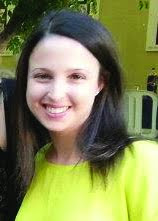 |
The short answer to this question is ‘nowhere’. We are in fact right here.
Young people within our community have a voice, yet it is a voice that the establishment, it turns out, appears not particularly keen to hear. It is a voice that may challenge preconceived notions, already established ideas and the status quo. Young Jews are eager to take ownership of their future within the community, yet little space is provided for this.
As a community, we are proud of the fact that our schools produce leaders. We see it in post-matric involvement in youth movements and in the South African Union of Jewish Students (SAUJS) work on campuses. We see the momentum of YAD, and the mini-Nahum Goldmann Fellowship gatherings, which bring together young Jews from across the spectrum to engage in vigorous yet constructive discussion on issues relating to the South African Jewish community now and into the future.
Recently I, along with some friends, was involved in the formation of a Union of Jewish Women Group, the Chevra Group, consisting of young professional women in their twenties with a focus on outreach in both the Cape Town Jewish and broader communities. We have received huge support and encouragement, and an overwhelming impression that this ‘youth’ gap has long needed to be filled.
There is a general sense amongst young Jews within the community of aging communal organisations, and communal structures increasingly perceived as nonrepresentative and even irrelevant. The questions we should be asking are how can we expect young Jews to take over the leadership responsibilities of the community if their voice is muted? How can we inspire youth to drive the future of our community if they are not empowered?
The Millenial Generation
Of course it is understandable that the prospect of the Millennial Generation, roughly those born between 1980 — 2000, rising to the highest echelons of leadership within our community may evoke fear amongst the Traditionalist and Baby Boomer Generations (roughly 1925 — 1945 and 1946 — 1964 respectively). As Time’s Joel Stein puts it in his cover story, ‘The Me Me Me Generation’, Millennials are narcissistic, over-confident, entitled and lazy. Millennials have no problem skipping over rungs of bureaucracy, or creating an entirely new system so they can avoid it completely.
On the other hand, according to Stein, Millennials are resourceful and adaptable. They have a unique understanding of technology and social media, and they see strength and power in collaboration. Perhaps most significant, Millennials carefully consider their choices rather than displaying blind acceptance and acquiescence to authority. Stein calls this generation ‘the most threatening and exciting generation’. They are antiestablishment, believe they deserve better, and are not afraid to effect the necessary changes in order to realise this. Of course this could evoke fear. We function within a community where ‘progression’ is often viewed as a dirty word, and comfort is found in the maintaining of the safe and nonthreatening status quo.
Perhaps there is a fear that a young voice will steer the community on a course far removed from that on which the establishment has steered us thus far, especially in view of the fact that the Millennial Generation is more liberal than generations before. Perhaps it is simply a fear of the unknown and initiated. A practical plan So how do we move forward and what are some ways in which to find middle ground? Firstly, I believe that the established community should show a greater commitment to mentoring and preparing young Jews for the leadership roles and responsibilities that they will eventually have to assume. Schools and youth movements should identify future leaders from schoolgoing age and prime them for a future of involvement in communal life.
This means that we will have to get comfortable with the idea that there may not be one homogeneous voice sitting around the proverbial table. If this concerns you, perhaps you need to take a look at the diverse beliefs and views within our community. Like it or not, this reality is not likely to change.
Secondly, I propose an official Jewish ‘think tank’ comprising of young Jews who wish to make their voices heard and contribute in a meaningful way to the sustainability of our community and to ensuring that our communal structures remain relevant long into the future. For this to succeed in the first place, the establishment must be able to better ‘sell’ communal involvement to young Jews, thereby enabling them to see tangible value in it.
Sure, there may be justifiable reasons to be concerned about a future where the Jewish community is run by Millennials. Yes, there is comfort in the safety of the tried and tested. But if guided and given the right tools, we could see Millennials become a great generation — a force for positive change, able to deal with the challenges that confront them. As Stein puts it, Millennials may be the generation that saves us all.
Amy Stein is an attorney practising at Bagraims Attorneys, specialising in Employment Law.











